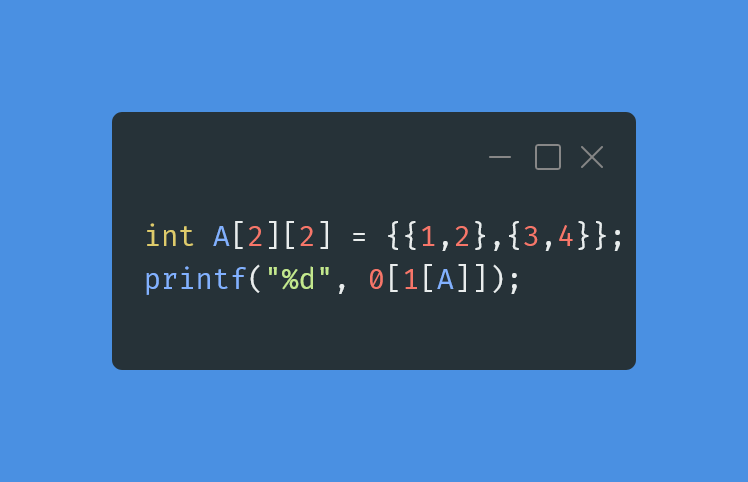Have You Ever Seen Code Like This?
emmtrix Tech Posts
Category: C Code
What does this program do?
- Compiler error
- Output 3
- Output 2
- Segmentation fault
Ever seen code like this?
Today our whole team stopped its tracks when we ran across this little-known corner case of the C language – none of us had ever met it in the wild, and it blew our minds.
Play with it yourself on Compiler Explorer
Why it works?
1. Subsript symmetry
In C, a[b] is defined as * (a + b). Because addition is commutative, b[a] is exactly the same as a[b].
2. Un-rolling the expression
|
Step |
Expression |
Meaning |
|
1 |
1 [A] |
same as A[1] = the second row {3,4} |
|
2 |
0 [1 [A] ] |
Same as (1 [A]) [0] = first element of that row |
3. Value produced
A[1] [0] equals 3, so the program prints 3 (Option B).
Take-away?
This isn’t a trick of undefined behavior; it’s 100% standard-conformant C, hiding in plain sight. Although you can write code like this, you probably shouldn’t – readability matters!
But knowing the rule keeps you safe when you encounter auto-generated or deeply macro-fied code.
Engineering update
We discovered that our C source-to-source compiler didn’t recognize this construct properly. A fix is already in the pipeline, and full support will ship tomorrow across the entire toolchain powering our products.
Stay tuned!

